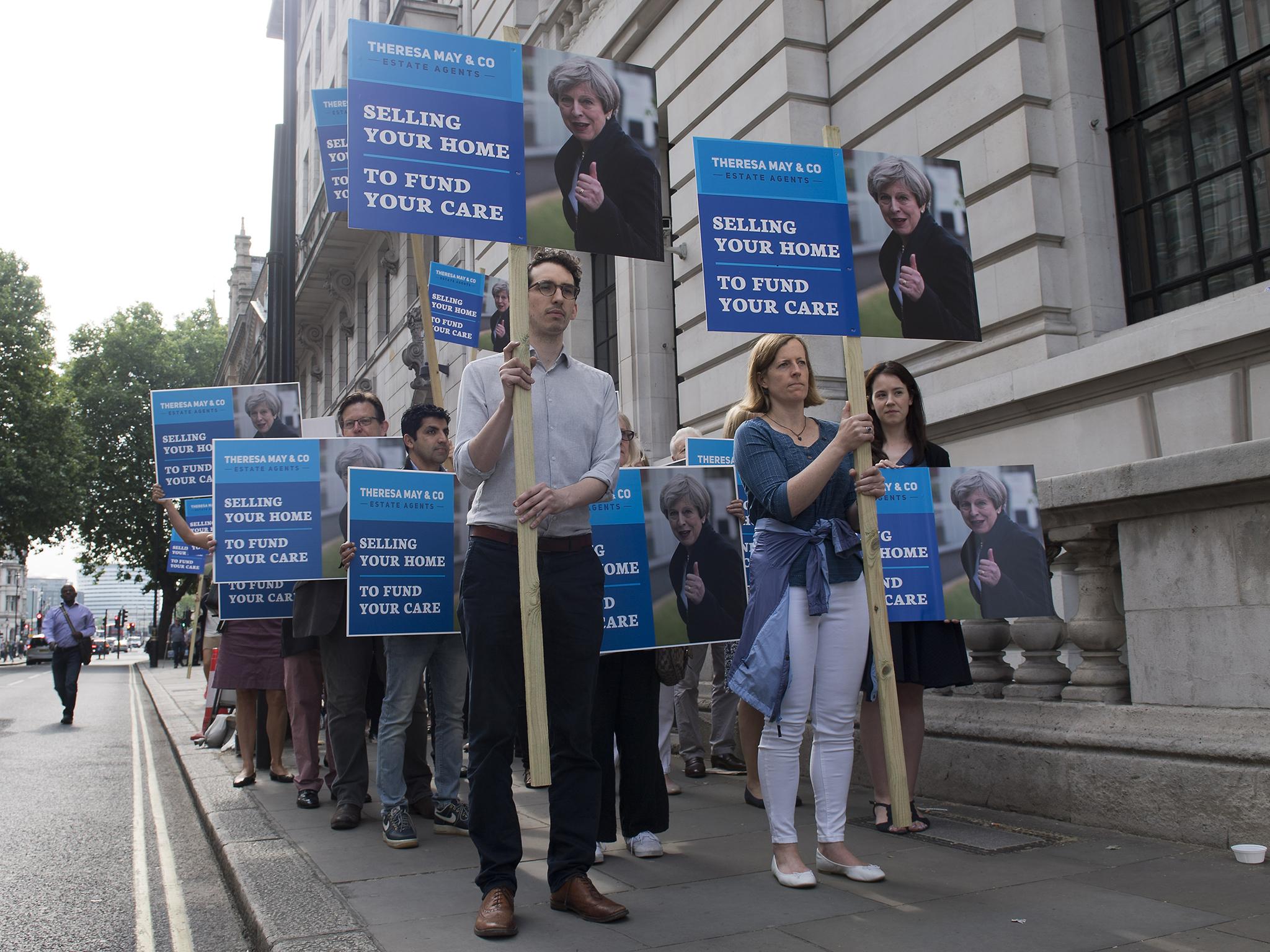Government's £240m winter pledge for social care is a ‘sticking plaster’, experts say
Funding injection by health secretary Matt Hancock does little to address longer term funding of struggling social care sector

Your support helps us to tell the story
From reproductive rights to climate change to Big Tech, The Independent is on the ground when the story is developing. Whether it's investigating the financials of Elon Musk's pro-Trump PAC or producing our latest documentary, 'The A Word', which shines a light on the American women fighting for reproductive rights, we know how important it is to parse out the facts from the messaging.
At such a critical moment in US history, we need reporters on the ground. Your donation allows us to keep sending journalists to speak to both sides of the story.
The Independent is trusted by Americans across the entire political spectrum. And unlike many other quality news outlets, we choose not to lock Americans out of our reporting and analysis with paywalls. We believe quality journalism should be available to everyone, paid for by those who can afford it.
Your support makes all the difference.A £240m emergency funding injection to prop up social care this winter and ease pressure on the NHS has been labelled a “sticking plaster” by patient groups.
Ahead of his speech to the Conservative Party Conference in Birmingham on Tuesday, health and social care secretary Matt Hancock said the move would prevent hospital beds being used by people who could be better cared for in their homes.
But council leaders warned they cannot be expected to “turn services on and off” in response to short-term bailouts from the government.
A comprehensive, long-term plan is urgently needed to address an estimated £3.5bn shortfall by 2025 in the budget to care for the UK’s growing numbers of elderly and disabled people, they added.
The extra £240 million will be allocated to councils to spend on measures including housing adaptations and care packages.
The money could buy 71,500 domestic care packages or 86,500 “reablement” packages.
Mr Hancock will tell the conference: “I can announce that today I am making an extra £240 million available to pay for social care packages this winter to support our NHS.
“We will use this money to get people who don’t need to be in hospital, but do need care, back home, back into their communities, so we can free up those vital hospital beds.
“And help people who really need it get the hospital care they need.”
But while any short-term funding was welcomed, charities warned that this was a sign of how serious the funding crisis had become.
Rachel Power, chief executive of the Patients Association said funding needed to be a major part of the government’s long-awaited green paper on adult social care.
“Yet another short-term top-up for social care shows how bad things have got, and how urgently we need a sustainable long-term solution to the care crisis,” Ms Power said.
The announcement also “falls into the trap” of seeing social care simply as a way of keeping pressure off the NHS rather than doing what’s best for patients, she added.
Kate Fitch, director of policy at the charity Sense, added: “Whilst we welcome that Matt Hancock is recognising the impact a lack of funding for social care has on the wider health system, these additional funds are ultimately just a sticking plaster."
Councillor Ian Hudspeth, chair of the Local Government Association’s Community Wellbeing Board, said the funding was “desperately needed” and last year, where the Treasury awarded £1bn to social care, councils help reduce the number of patients stuck in hospital unnecessarily by 37 per cent.
“However, short-term bailouts are not the answer. Councils and providers cannot simply turn services on and off as funding ebbs and flows. Putting in place the right services and workforce requires forward planning and longer term contracts," he said.
Shadow social care minister Barbara Keeley said: “There is a severe crisis in social care caused by eight years of Tory austerity, and tinkering at the edges like this is not going to solve it.
“With 400,000 fewer people receiving care under this Government than in 2010, funding such a small number of care packages is a drop in the ocean."
Join our commenting forum
Join thought-provoking conversations, follow other Independent readers and see their replies
Comments